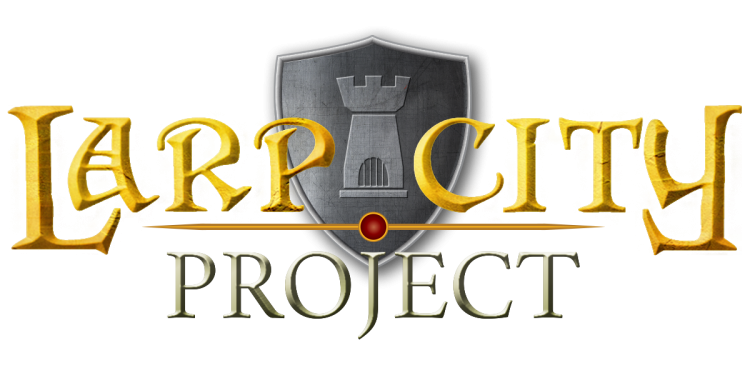One of the worst nightmares a plot team can experience is spending hours developing a clever and intricate mystery, only to have it fall flat because the players have no clue how to solve it (or worse yet, don’t even know there is a mystery and just stand around wondering why the plot hasn’t started yet).
This doesn’t occur all of the time; there are many would-be sleuths out there, and many great mystery writers. But, it is a problem that some games run into: How do you introduce a mystery or plot involving problem solving skills in such a way that is challenging, but isn’t completely impossible?
There are 2 factors at play here. First is the player’s native investigative and problem solving skills. Second is writing the plot in such a way that it is solvable within the relative ability level of your group. Both of these factors must be balanced in order to create an interesting, challenging and solvable plot.
The easiest factor to solve is the difficulty level of the plot, though I will still give some tips on writing challenging mysteries later in this article.
The trickiest part to deal with is the skill of your players. As a plot writer, you want to expand your horizons, rather than writing the same old predictable stuff all the time. But if you go too far, your players won’t get it and no one will have any fun. While it might seem like your players have only a certain unchangeable level of intelligence; to the contrary, detectives can be made.
With the right approach, you can train your players to be more intelligent, more perceptive, and to solve more complex problems and mysteries. The result being that both you and your players have a greater sense of accomplishment as you present more and more challenging tasks that they successfully overcome.
Making a Detective
One unfortunate side effect of our modern society is people have become accustomed to having all the answers given to them on a platter. In math class they are taught exactly how to solve a problem, and then are given a number of problems that are all solved in that exact way. Everything comes with instruction manuals or videos now (whether people actually read them is another story entirely though). Years and years of video games, all designed in approximately the same way, have narrowed the player’s view so they can only solve a problem if it is presented in the same way as a video game. (Sometimes referred to as the “Playstation Effect”.) Unfortunately life doesn’t always work like a video game.
There are very few scenarios in modern life where someone honestly has to figure out how to do something on their own. It is a rare individual that strikes out on his own and learns how to do something through trial and error or experimentation. If you are one of these people who can strike out on your own, congratulate yourself, you have an uncommon skill.
But problem solving and investigation are both skills that can be learned through practice. If your players have not had much chance to exercise these skills, they will need some training before you throw them into the deep end. Here are some ways to teach them:
1. Start Simple. Present problems and mysteries with a gradual approach. Start with very simple tasks that you know they can do and build up with gradually more and more difficult problems. You don’t have to baby them or patronize the players, they won’t appreciate that. This is done within a real plot line as part of a real game; just recognize what your players are capable of and give them a challenge that is just on the edge of what they can do. They will learn from this and will be able to use that experience to solve more complex problems. If you accidentally give them something too difficult, get them through it one way or another, and then decrease the difficulty, giving easier tasks, until they master those. Then give more difficult tasks again.
2. Give them a leg up. Try including an NPC that the players can go to for advice. The NPC must never give any actual answers, but can point the players in the right direction to help them along. “The best teachers are those who show you where to look, but don’t tell you what to see.” ― Alexandra K.Trenfor
For example, in a murder mystery I wrote recently for a convention, one of the NPCs was the Captain of the Guard. Besides inviting players to the game by asking for their help in investigating the murder, he was also an adviser for players who got stuck or didn’t know how to proceed. He never gave them answers, but he advised them on what kinds of questions to ask, and where they might find one of the suspects wandering around the convention. If they took one of the red herrings, he would discuss their logic and get them to look closer at it without directly saying it was a red herring. Since players were being invited at random, I knew we would have people at all skill levels; so the Captain played an important part in making the game fun for everyone. Players who started out hesitant and unsure of themselves, were outgoing and determined in their questioning by the end of the game.
3. Teach by example. A useful trick is to have an NPC who pretends to be a player. The players all think he or she is just another player, but this NPC secretly knows the whole plot and can prevent the players from going in the completely wrong direction. When the players gloss over an important clue and are about to head down the wrong road entirely, the NPC is there to point out the vital clue they didn’t pay attention to. It requires great skill to pull this off without making the players suspicious, but if done right, they will still learn from these experiences and become better at solving future scenarios. This NPC will be teaching them how to investigate by helping them sift through what is important and what isn’t important, which is the most important skill one can have in investigation.
4. Practice specific skills. Break down the different skills required to solve problems or mysteries and present smaller problems that use one of those skills at a time. As the players get better, introduce something that requires 2 skills at one time, and so on. By focusing on a specific skill you can increase the players’ abilities in areas they happen to be weak in. And it is easier to learn something when you focus on one part of it at a time rather than trying to take on everything at once.
The basic strategy in all of these steps is to give the players more experience with scenarios they can actually be successful at. By purposefully exercising their skills and abilities in certain areas and giving them tasks of the proper difficulty level, they will improve and learn much faster than they would if given everything all at once.
I know this may seem like it will take a long time, and it might, depending on the circumstances; but a great game with an excellent team of players is worth investing in.
Writing Mysteries
The following is my advice for writing mysteries or problem solving scenarios that provide a challenge, but are actually doable:
1. Don’t write a Sherlock Holmes novel. If your mystery is so convoluted, so complex or requires such vast perceptiveness that it belongs in a Sherlock Holmes novel, chances are that only Sherlock Holmes can solve it. While an honest challenge should have a risk of failure, not very many people enjoy a completely impossible task.
2. Walk through the scene. Even if you only do it mentally, it is important to walk through the sequence of events. If it’s a murder or theft, lay out the crime scene and go through the exact motions. This will point out discrepancies in your plot, and allow for a more realistic scenario. In the case of a problem solving scenario, walk through everything the player would need to do to solve it. This will point out errors, or conflicts in your design.
3. Keep things organized. You will make your life a lot easier if you have an organized system for handling your plot. For example, in the murder mystery I wrote, I knew the game needed to last for 3 days. It was being hosted at a convention that went on for 3 days and I wanted to game to be played during the entire convention, rather than something that could be solved in the first couple of hours. The trick was: What clues should I use, and in what sequence should I give them out so the players can’t completely solve it until the last day. I knew I had 4 suspects, so it was as simple as arranging the clues to eliminate 1 suspect each day, leaving the guilty party as the only person left on the 3rd day. By only releasing enough clues to eliminate the specific character for that day (as well as adding a few red herrings here and there to keep things interesting), even very thorough players who got every clue still had a game to continue playing each day of the convention, and it became very easy to figure out what clues to write because I had an organized way to approach writing them.
4. Stay flexible. Strike a balance between your planning and organic progression of the plot. Players hate being railroaded, so leave room for the plot to shift. If you over-plan, your plot will be too rigid, and you will be faced with either the plot breaking down entirely or having to railroad your players back on track.
For example, in the murder mystery I mentioned above; instead of dictating everything about each suspect and what each was doing at the time of the murder, (which would have taken days of writing that I didn’t have and been a lot of work for the NPCs to memorize), I allowed them to create any non-essential details on the fly. The solid clues were dictated, but the rest was given to the NPCs to create organically. Rather than seeming disorganized, it actually created a very realistic effect, because in any real situation involving more than one person, their stories are going to naturally vary one way or another. It also created a very interesting dynamic to the game, where players would spot discrepancies in the NPCs stories which would fuel further questioning and investigation. The story was actually being created by the players’ questioning rather than my planning ahead of time. So, be willing to leave some things up to chance, and trust your NPCs’ ability to improvise on non-essential parts of the plot.
5. Have a back-up plan, or 5. Being flexible doesn’t mean you have to leave everything to chance. You will never predict every path your players may take, but it can be helpful to have multiple possible paths, even with a mystery. It’s better to have 5 partially written outcomes, than 1 exactly detailed outcome. 5 partially written outcomes leaves leeway for you and the NPCs to improvise based on the choices your players make.
6. Work backwards. When writing your plot, start from the end and work your way backwards. This will help your plot flow logically towards the final outcome. In the example I have been using above, I started out with the murder (the end of the story), and decided it was done by poison. Then I decided who the murderer was. From there it was easy to create alibis for the characters who weren’t the murderer, then to create clues that would reveal those alibis.
7. Look at it through the players’ eyes. Don’t assume that because something makes sense to you, that it will make sense to your players. You have the benefit of understanding the entire plot and being able to imagine it in your head. The information your players have is limited to what you provide them. Before the day of the game, make sure to walk through the entire plot through the viewpoint of one of your players. It’s basically a roleplaying exercise, except instead of playing a warrior, you play a person playing a warrior (or whatever your characters might likely be).
You have to set aside everything you know and just look at it from the frame of mind of what the players will know in the game. While not always practical, it is optimum to do a trial run of the plot with your plot team. But if this isn’t feasible, you can at least walk through it mentally, imagining the sequence of events and what the players will see or hear. This is an excellent final check to ensure your plot will make logical sense.
That’s the advice I have for anyone trying to add an element of mystery, problem solving or investigation into their game; and how to help your players along if they are having difficulty. I hope it has been helpful.


